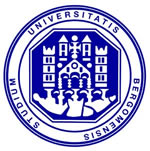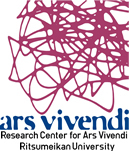SMLC 2013
Synthetic Modeling of Life and Cognition: Open Questions
Workshop
"Synthetic Modeling of Life and Cognition: Open Questions"
12-14th September 2013, University of Bergamo, Italy
Organizers:
Luisa Damiano (University of Bergamo)
Vincent C. Müller (Anatolia College/ACT & University of Oxford)
In recent decades researchers in various scientific domains have been working intensely on procedures directed to exploring life and cognition in a “synthetic” way, i.e. through modeling in artificial systems (“made by humans”). Research on biological and cognitive processes is thus been increasingly based on implementations in “software” (simulations), “hardware” (robots) and “wetware” (chemical systems) used as scientific models of the processes in question. This scientific development is often seen as the emergence of a new general methodology, a “synthetic methodology”, slated to become a dominant force in science. This synthetic methodology poses a challenge for both science itself and the philosophy of science: to define the possibilities, the limits, and the ways of the synthetic modeling of life and cognition, and its relevance for biological, behavioral, cognitive, and social sciences.




The workshop “Synthetic Modeling of Life and Cognition: Open Questions” will tackle this challenge by creating a strongly interdisciplinary forum that can formulate and address these fundamental questions. The workshop brings together pioneers of the synthetic exploration of life and cognition from different scientific domains (computer science, synthetic biology, cognitive, developmental, social robotics...), and invites them to discuss with philosophers and other specialists studying this emerging form of scientific investigation.





Some of the questions will be: In what sense and under which conditions can artificial systems be considered models of natural living and cognitive processes? What are the prospects for advancing biological, behavioral, cognitive and social sciences through these methods? How can we ensure a successful transmission of knowledge from the “sciences of the artificial” to the “sciences of the natural”? What are the impacts of synthetic methodology on our classical way of conceiving and practicing science? What are the impacts on our scientific, social and environmental ecologies?
- Minoru Asada, Osaka University, Japan
http://www.er.ams.eng.osaka-u.ac.jp/asadalab/index_en.html - Angelo Cangelosi, University of Plymouth, UK
http://www.tech.plym.ac.uk/soc/staff/angelo/ - Luciano Fadiga, University of Ferrara, Italy
http://www.iit.it/en/people/robotics-brain-and-cognitive-sciences/senior-researcher/luciano-fadiga.html - Stuart Kauffman, The Institute for Systems Biology of Seattle, USA
http://www.cs.tut.fi/sgn/csb/Kauffman/ - Pier Luigi Luisi, University of Rome Three, Italy
http://www.plluisi.org/luisi.html - Giorgio Metta, Italian Institute of Technology, Italy
http://www.iit.it/en/people/icub-facility/department-director/giorgio-metta.html - Giulio Sandini, Italian Institute of Technology, Italy
http://www.iit.it/en/people/robotics-brain-and-cognitive-sciences/department-director/giulio-sandini.html - Ricard Solé, Pompeu Fabra University, Spain
http://complex.upf.es/~ricard/Main/RicardSole.html



